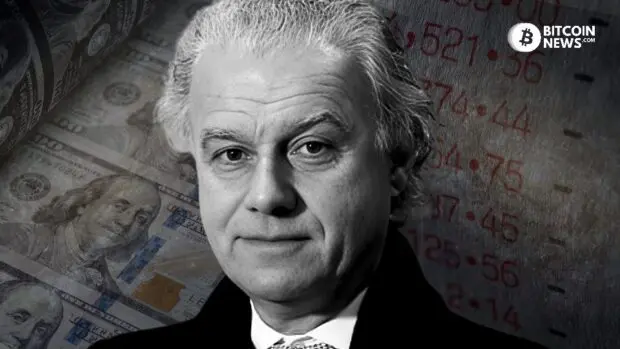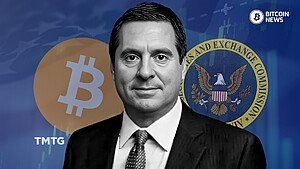While dealing with a daunting $33 trillion U.S. “debt death spiral,” Christopher Wood, the global head of equity strategy at Jefferies, has cautioned that the Federal Reserve might find itself compelled to recommence its money-printing efforts.
This action could have the unintended consequence of devaluing the U.S. dollar, consequently igniting a surge in bitcoin’s value, potentially equating it with the status of gold as a store of value.
Gold and Bitcoin; Safeguards Against Inflation
Wood, penned a message to clients that CNBC had the opportunity to review. In this communication, he characterized both Bitcoin and gold as essential safeguards against the resurgence of inflation.
He stated:
“G7 central banks, including most importantly the Federal Reserve, will not be able to exit from unconventional monetary policy in a benign manner and will ultimately remain committed to ongoing central bank balance-sheet expansion in one form or another.
Related reading: Michael Saylor Says Bitcoin is a Shield Against Inflation
In 2022, the Federal Reserve initiated the challenging process of reducing its nearly $9 trillion balance sheet, which had swelled during the Covid-19 pandemic and subsequent lockdowns. This move, known as quantitative tightening, involves the Fed withdrawing liquidity from the financial system and transferring the responsibility of handling newly issued debt to the private sector.
Additionally, to combat surging inflation, the Fed has been rapidly increasing interest rates, creating concerns about a potential counterproductive cycle that could devalue the U.S. dollar and boost the price of bitcoin.
Related reading: How Bitcoin Protects Against Inflation And Currency Devaluation
Related reading: Liquidity Growth Breaks 50-year Record in Iran
U.S. Debt Death Spiral
Christopher Wood suggests that the Federal Reserve might need to swiftly adopt a more accommodative monetary policy if the U.S. experiences a recession. This urgency stems from a delay in the Fed’s interest rate hikes to curb inflation, caused by the substantial increase in the money supply during 2020 and 2021. Wood argues that if the Fed fails to exit its unconventional monetary measures smoothly, it could lead to the devaluation of the U.S. dollar, ultimately benefiting owners of both gold and bitcoin.
Bitcoin has gained significant attention from institutional investors, especially BlackRock, the world’s largest asset manager. According to Wood, Bitcoin has evolved into an investment option for institutions, supported by secure custodian services for digital assets. It is now considered an alternative store of value, alongside gold.
Related reading: Why All Investors Need to Own Gold – and Bitcoin
As the 2024 Bitcoin halving event approaches at a swift pace, numerous investors are flocking to Bitcoin in anticipation of a significant price surge. Many mining companies are already preparing by acquiring new mining equipment and securing diverse energy sources. Notably, companies like Iris Energy and Lava Pool in El Salvador are actively making these preparations.
The excitement is further amplified by the imminent decision from the SEC regarding Bitcoin spot ETFs. If the SEC grants approval, which is widely expected, particularly since BlackRock has applied for it, institutional investors are likely to pour into Bitcoin. This influx of institutional investment could potentially open up a $30 trillion market for Bitcoin, leading to a substantial increase in its price and adoption.










